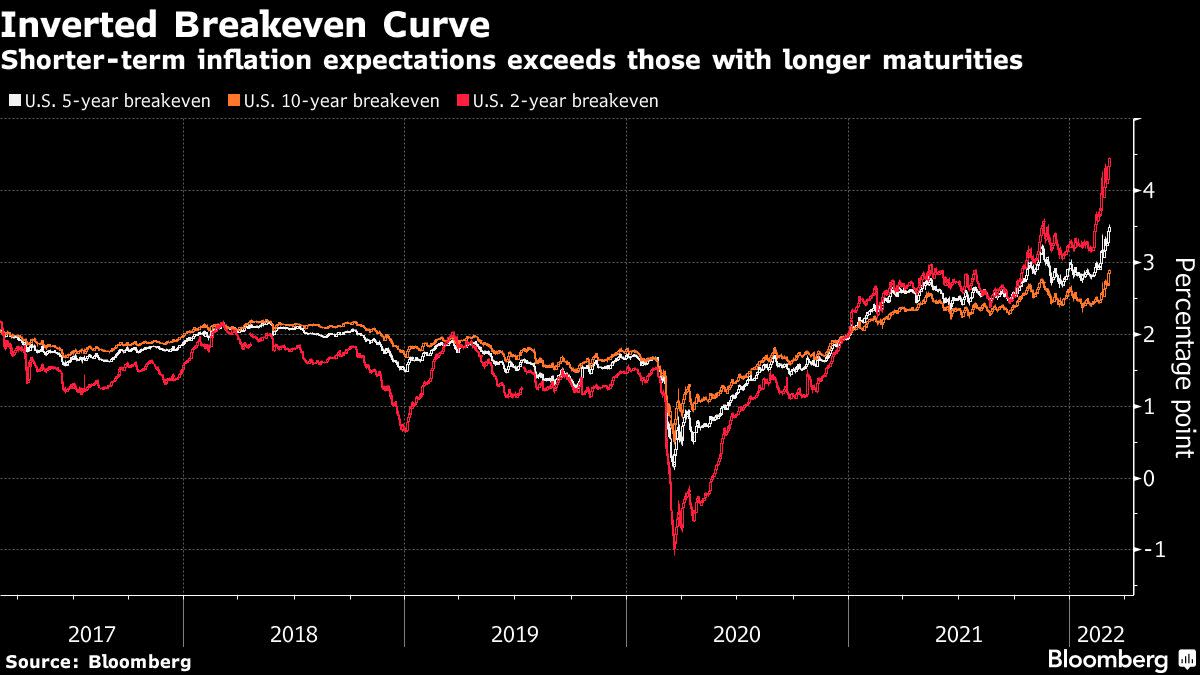Goldman Sachs Says Investors Unprepared for U.S. Curve Inversion

(Bloomberg) — Investors’ inflation expectations suggest that U.S. yield-curve inversion is going to take them by surprise, according to Goldman Sachs Group Inc.
Most Read from Bloomberg
The U.S. bond market has been dominated in recent months by sharp narrowing in the spread between short- and long-dated Treasury yields, fueled by expectations for Federal Reserve rate increases. The trend gathered pace in the two weeks since Russia’s invasion of Ukraine unleashed a surge in energy prices that threaten to boost inflation further. The gap between the two- and 10-year tenors breached 20 basis points Monday, down from over 90 basis points in early January.
Curve flattening has raised the specter of an inversion — a historic signal from the bond market that a recession is likely in 12 to 18 months. The last inversion occurred in 2019 after a series of Fed rate hikes.
The U.S. rates market is “pricing the inflation impact of an oil shock as temporary,” Goldman Sachs chief global rates strategist Praveen Korapaty said in a note Tuesday. If it continues to do so, “further upside shocks to inflation should manifest as even greater inversion of the inflation curve,” in which long-term inflation expectations are lower than short-term ones.
The breakeven rate for 30-year Treasury Inflation Protected Securities, the market’s estimate for the average annual pace of consumer-price gains, climbed to 2.51% Tuesday, the highest level since 2013. But the five-year breakeven rate is 3.49%, the two-year 4.44%.
It’s “a matter of arithmetic” that “an extremely inverted inflation curve makes inversions of the nominal yield curve that are either earlier in the cycle or deeper” than investors have been used to in recent decades, Korapaty writes.
Most Read from Bloomberg Businessweek
©2022 Bloomberg L.P.



